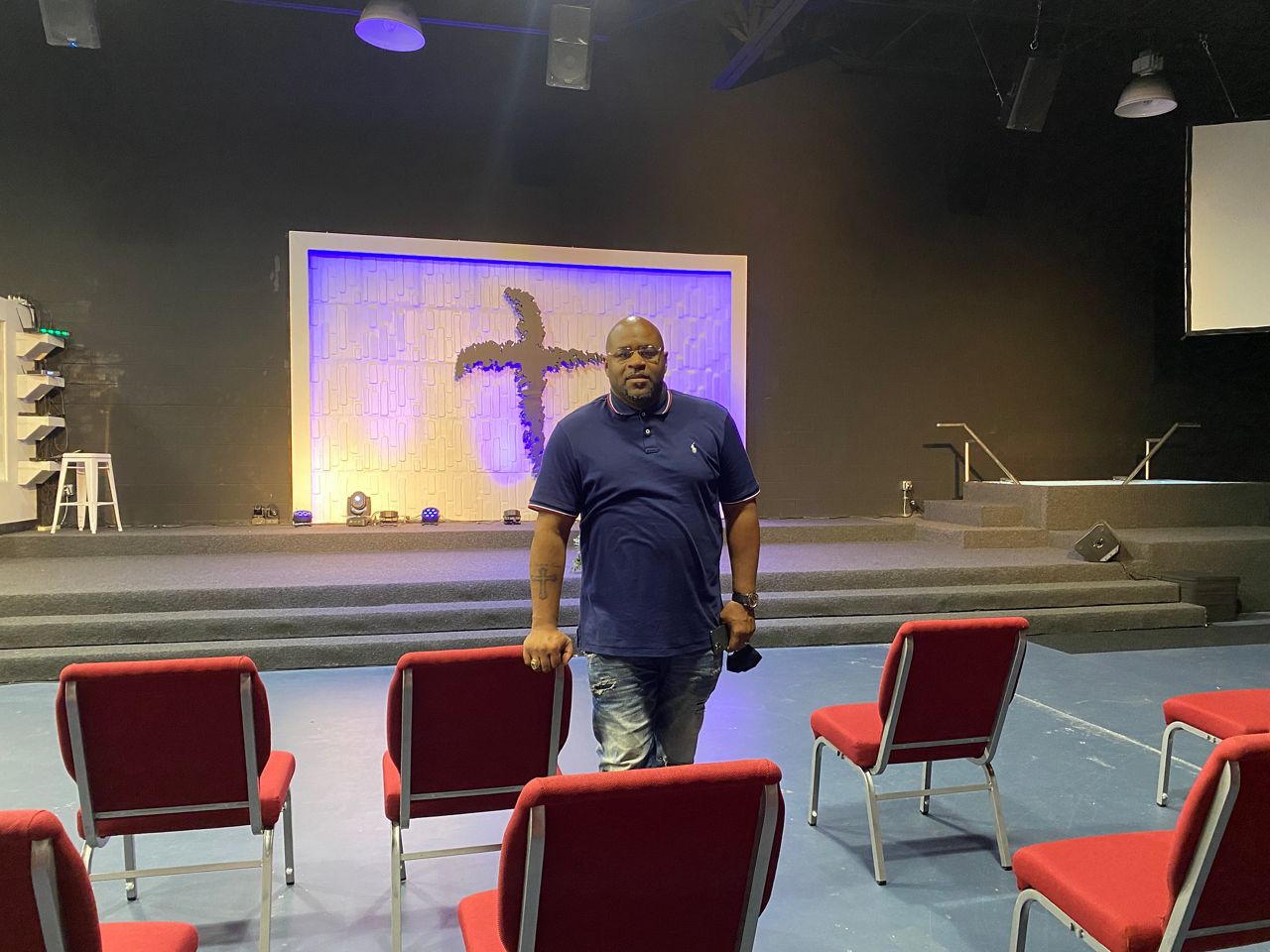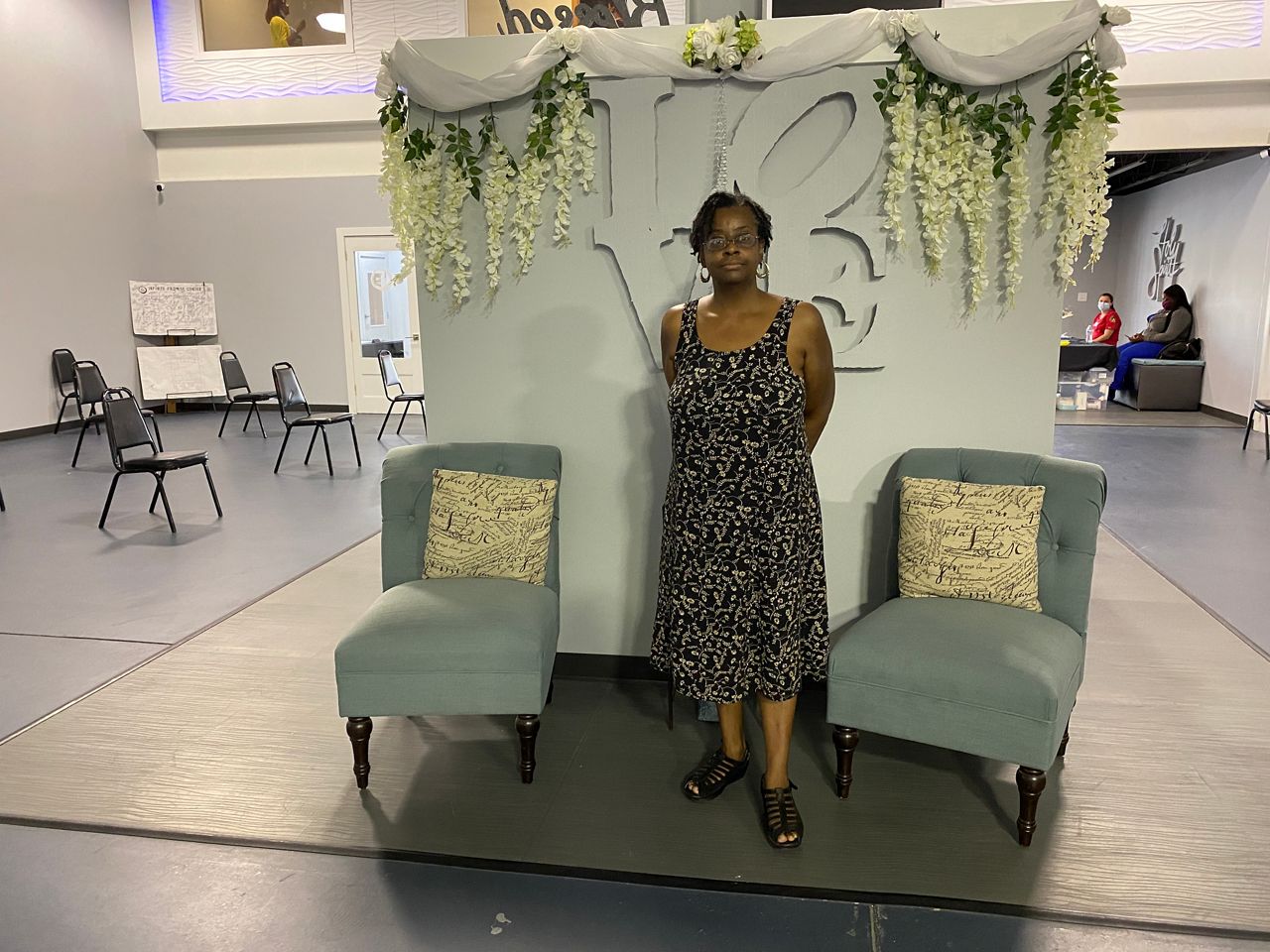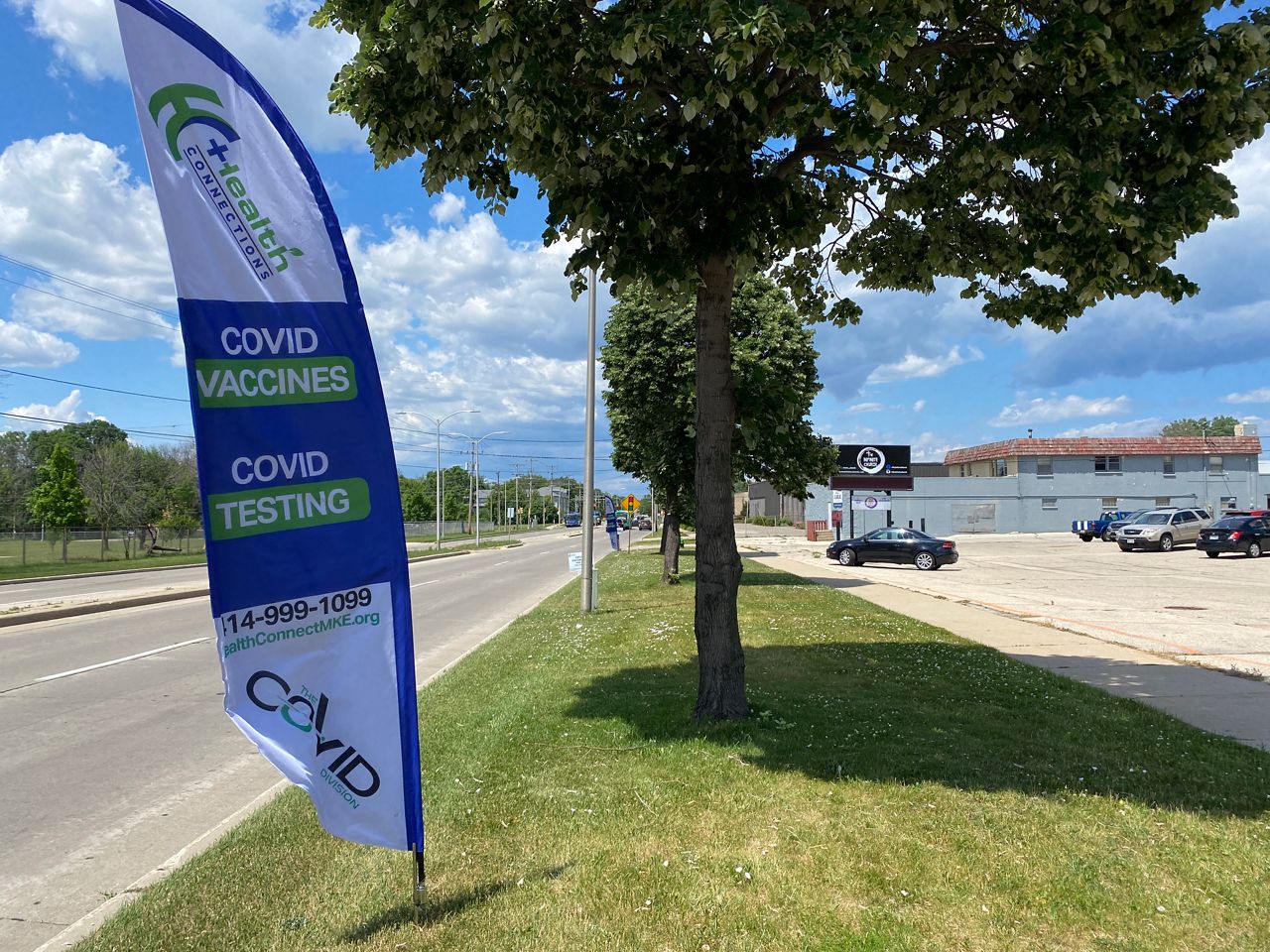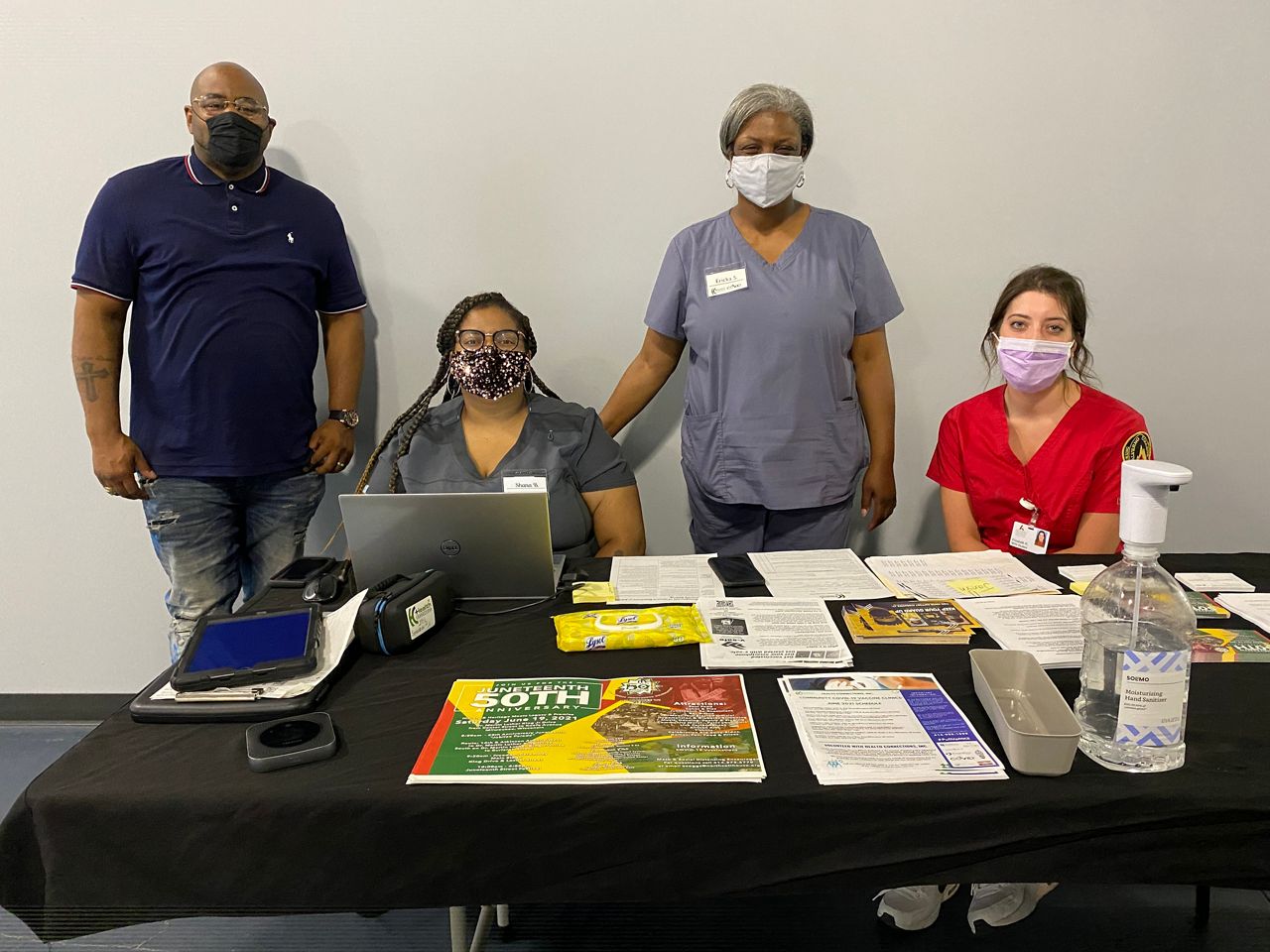Milwaukee groups bring COVID-19 vaccines to church
MILWAUKEE — When COVID-19 vaccines started rolling out, Ericka Sinclair knew she had to get involved.
Sinclair is the founder and CEO of Health Connections, Inc. — a health care nonprofit dedicated to serving some of Milwaukee’s most vulnerable populations.
What You Need To Know
- Health Connections, Inc. is holding clinics with Souls to the Polls and MICAH at churches across Milwaukee
- The equity-focused clinics are aimed at meeting people where they’re at, in trusted locations within communities
- As demand dips, leaders say building trust is key to getting more shots in arms and improving equity, as Black Wisconsinites have much lower rates of vaccine coverage
And with her years of public health experience, including working with HIV, Sinclair knew that staying put in her clinic wouldn’t be enough to really make an impact. She’d need to get out and do the work.
“We’re just trying to get in people’s way,” Sinclair said. “Wherever they are, we want to be.”
One way she’s been meeting people where they are: Taking the vaccine to church. Health Connections, Inc. has teamed up with two congregation-based groups — Souls to the Polls and Milwaukee Inner-city Congregations Allied for Hope (MICAH) — to hold a series of vaccination clinics throughout the city supporting vaccine equity.

Pastor Radontae Ashford in the sanctuary of The Infinite Church. (Maddie Burakoff/Spectrum News 1)
For Sinclair, turning to churches was a natural progression: She has five family members who are pastors throughout Milwaukee. And, she explained, “in the Black community, churches are just one of the mainstays for us. If something happens, that’s home.”
On Monday, the Health Connections team rolled into The Infinite Church on Milwaukee’s north side, near some of the least vaccinated patches of the city.
Radontae Ashford, the pastor of The Infinite Church, said getting vaccinated — and helping others do the same — was part of his responsibility as someone in “the people business.”
After seeing the impact the pandemic had on the community around him, Ashford said he wanted to do what he could to help protect his congregation and move toward herd immunity. His church has already been active in feeding hundreds of families through its food pantry during COVID-19.
“Being a pastor, and caring for the care and concerns of so many people,” he said, “I was not fearful, but prayerful that I didn’t want to have to bury any of my members, any of my loved ones, my family members.”
A lot of churches have felt the loss of the pandemic, pointed out Lisa Jones, the lead organizer for MICAH. The first person to die of COVID-19 in Milwaukee belonged to one of MICAH’s congregations — and Rev. Greg Lewis, who founded Souls to the Polls, barely survived a life-threatening coronavirus infection.

MICAH lead organizer Lisa Jones. (Maddie Burakoff/Spectrum News 1)
But even as the virus has taken its toll, the demand for COVID-19 vaccinations has faced a sharp dropoff in Wisconsin, according to data from the Department of Health Services. And Black Wisconsinites still have the lowest rates of vaccine coverage: Only one-quarter of Black residents in the state have gotten at least one shot, compared to around half of all residents, the DHS reports.
Jones said the pandemic has highlighted the disconnects that exist within the health care system.
“I don’t want to see the vaccine rate the way it is,” she said. “I don’t want to see the disparities, the vaccine deserts.”
Supporting vaccination efforts is one way to advance MICAH’s mission to build healthy communities and, simply put, “save lives,” Jones said. But doing that involves making sure everyone has the knowledge they need to make an informed choice, she pointed out.
Looking at the current vaccination rates, it’s clear that the overall public health messaging isn’t getting through to everyone, Sinclair said. She still has to combat conspiracy theories and other concerns about the shots, like the (false) ideas that vaccines cause infertility or include microchips.
Ashford — who said he’d been an advocate for COVID-19 vaccines since day one — even live streamed his own shot and documented his symptoms to help educate his congregation.

A sign outside of The Infinite Church advertises available vaccines. (Maddie Burakoff/Spectrum News 1)
“I understand that there’s concern, I understand that there’s a lack of information,” Ashford said. “And I know that a lot of people were worried about the side effects. But the side effect of COVID has been hundreds of thousands of deaths.”
For Sinclair, building trust has been a major focus to combat those information gaps and get more shots in arms.
Holding clinics in churches — which are already trusted spaces — has been helpful in making people feel more comfortable, she said. And being a Black-owned health care firm that’s embedded in the community rather than a government group tends to put people at ease too.
“It’s the trust in the location, it’s the trust in the person that’s asking you to show up at their space to do this work, it’s the trust that you have in us doing it,” Sinclair said. “We don’t take it lightly.”
Health Connections, Inc.’s work throughout the rest of the pandemic has also helped the group build up relationships, she added.
Sinclair’s team has been offering COVID-19 testing since early on, including in-home swabs for those who couldn’t get out to a site. When the vaccines were first approved, one 105-year-old woman — the first person to get an in-home test from Health Connections — called Sinclair up right away to ask when she could get her shot.

The team at The Infinite Church on Monday. (Maddie Burakoff/Spectrum News 1)
In the end, Sinclair said it’s essential to be active, rather than passive, in engaging with people about COVID-19 vaccines.
“We can’t do the ‘drop the flyers off and walk away from the door’ thing,” she said. “We have to knock on the door, have a conversation, figure out what their hesitations are about, answer those questions.”
The community partners have more upcoming clinics planned at churches throughout Milwaukee, as well as other locations where they can give people easy vaccine access — like Boys and Girls Clubs, farmer’s markets and a Juneteenth celebration this weekend.
Sinclair said the clinic would keep trying to serve as “gap fillers” and “barrier removers” for the people they serve. She recalled at a recent clinic, a homeless man happened to stop by and was able to get his Johnson & Johnson vaccine after having trouble seeking out a shot on his own because he didn’t have a phone.
“That’s what fuels us to keep doing these,” Sinclair said. “It just takes one person that’s like, ‘Oh, my God, if you weren’t here, I wouldn’t have gotten this. And I really need it.’”
For Ashford, being vaccinated has already brought back some peace of mind, he said. And after shifting services online for much of the pandemic, his church is now holding in-person services again — a way to bring back some more connections to his work, even with a limited capacity.
“Faith is about being together,” he said. “It’s about people coming together.”
The next vaccination clinic will be held at Allen Ebenezer CME Church on Friday, from noon-3 p.m. For more information about upcoming clinics, see the Health Connections, Inc. website or call (414) 999-1099. Health Connections is also looking for volunteers with or without clinical experience to help support vaccination efforts.


